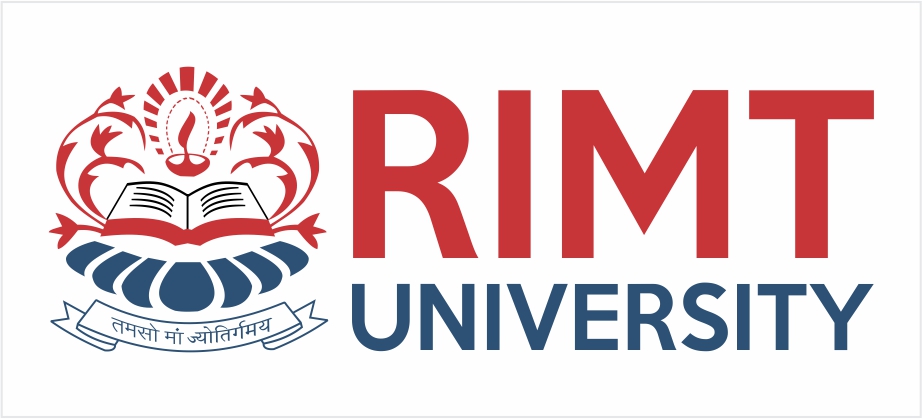About Programme
The course trains students in understanding and operation of power plant operation including T&D, which form a crucial part of the evolving power system technology. M.Tech Power Systems Engineering course familiarizes students with processes of analyzing, developing, designing and evaluating high-end power system devices, for managing a variety of challenging projects and research work.
Eligibility & Admission
Pass in B.E. / B. Tech. in Electrical Engineering/ Electrical & Electronics Engineering / Electrical and Instrumentation Engineering / Electrical and Power Engineering / Electrical Devices and Power Systems / Electrical Engineering Industrial Control / Electrical Instrumentation and Control Engineering, Electrical Power System / Instrumentation / Instrumentation Engineering / Instrumentations & Control Engineering / Electronics & Instrumentation Engineering / Applied Electronics Engineering / Applied Electronics and Instrumentation Engineering.
| PROGRAM FEE | AMOUNT |
|---|---|
| Application Fee (One Time) | 1,000/-INR |
| Registration Fee (One Time) | 15,000/-INR |
| Security (One Time – Refundable) | 8,000/-INR |
| Semester Fee | 52,500/-INR |
Scholarship
| Marks in Graduation | Scholarship Per Semester | Applicable Fee After Scholarship Per Semester |
| 60% / 6CGPA and Above | 30% | 36750/-INR |
| Percentile | Scholarship Per Semester | Applicable Fee After Scholarship Per Semester |
| More than 95 | 30% | 36750/-INR |
| Between 90 – 95 | 20% | 42000/-INR |
| Between 85 – 89 | 10% | 47250/-INR |
| Disability Level | Scholarship Per Semester | Applicable Fee After Scholarship Per Semester |
| 90% & Above 90% | 30% | 36750/-INR |
| 75% & Below 90% | 20% | 42000/-INR |
| 50% & Below 75% | 10% | 47250/-INR |
| Category | Scholarship Per Semester | Applicable Fee After Scholarship Per Semester |
| Wards of Param Veer Chakra | 30% | 36750/-INR |
| Winners of Maha Veer Chakra | 20% | 42000/-INR |
| Winners of Veer Chakra | 10% | 47250/-INR |
| Work Tenure | Scholarship Per Semester | Applicable Fee After Scholarship Per Semester |
| More than 5 years continuous service | 30% | 36750/-INR |
| 1 Year – 5 Years continuous Service | 20% | 42000/-INR |
| Category | Scholarship Per Semester | Applicable Fee After Scholarship Per Semester |
| Single girl child | 20% | 42000/-INR |
| Category | Scholarship Per Semester | Applicable Fee After Scholarship Per Semester |
| Parentless | 30% | 36750/-INR |
| Either fatherless or motherless provided the annual family income is less than 2.5 lakh | 20% | 42000/-INR |
Learning Outcomes
Apply the knowledge of science and mathematics in designing, analyzing and using power converters for various industrial and domestic applications.
Use modern tools, professional software platforms, embedded systems for the diversified applications.
Solve the problems which need critical and independent thinking to show reflective learning.
Visualize the larger picture and apply the domain knowledge in the industrial problems.
Understanding of intellectual property rights and ethical responsibility.
- Ability to communicate effectively, learn independently and engage in life-long learning.
Programme USP
Courses offered in Electrical Engineering are Industry required & job oriented and are framed by faculty members with desired specialization.
Well Qualified and Experienced Faculty.
State-of-the-art laboratories equipped with latest equipment’s (hardware and software) are being used.
Focus on the extracurricular activities.
Project Based Learning System.
- Industrial as well as Government Sector visits are organized.
Programme Education Objectives (PEOs)
- PEO1 The Post Graduates of Power Systems engineers will be able to take important roles in the corporate and public power sectors or conduct related research at academic and research institutions.
- PEO2 Apply their knowledge and skills in power system engineering while keeping practical limits in mind for the benefit of society as a whole.
- PEO3 Participate in life-long learning and professional growth through self-study, continuing education, or professional and doctorate studies.
Programme Outcomes (POs)
- PO1 Independently conduct research and development activities to tackle practical challenges.
- PO2 Ability to recognise, evaluate, and address current technical challenges in the field of power systems and to offer tactical solutions that meet safety, societal, cultural, and environmental requirements.
- PO3 Ability for continued pursuance of research and to design, develop and propose theoretical and practical methodologies towards research and development support for the Power System infrastructure.
- PO4 Willingness and aptitude to take on administrative problems, including the management of numerous interdisciplinary projects, and finish them in an effective manner while taking societal, environmental, economic, and financial considerations into account.
- PO5 An ability to write and present a substantial technical report/document.
- PO6 Demonstrate knowledge of contemporary issues in the area of power system engineering.
- PO7 Ability to articulate ideas clearly and communicate effectively orally and in writing with others, conforming to various national and international standards and practises for content recording and presentation.
- PO8 Design advanced level power system, components, or processes to meet identified needs within economic, environmental and social constraints.
Programme Specific Outcomes (PSOs)
- PSO1 Capability of using sophisticated technological expertise for modelling, analysing, and solving present difficulties in the power sector from a global perspective, as well as to undertake thorough and independent investigations on multifaceted challenging issues in the field of power systems.
- PSO2 Ability to employ and develop novel techniques for modelling, analysing, and resolving a variety of scientific problems relating to power systems, as well as to take on technical and administrative challenges like managing a variety of interdisciplinary projects, working in a team with shared goals to tackle challenges, and inspiring the group to adopt a multidisciplinary and collaborative strategy.
Career Prospects
Successful postgraduates of M. Tech. Power System course are hired in positions such as Energy Manager, Electrical Engineer, Test Engineer, Power System Engineer, Manufacturing Engineer, R&D Engineer, Researcher and Educator may also opt for PhD in Electrical Engineering etc.
